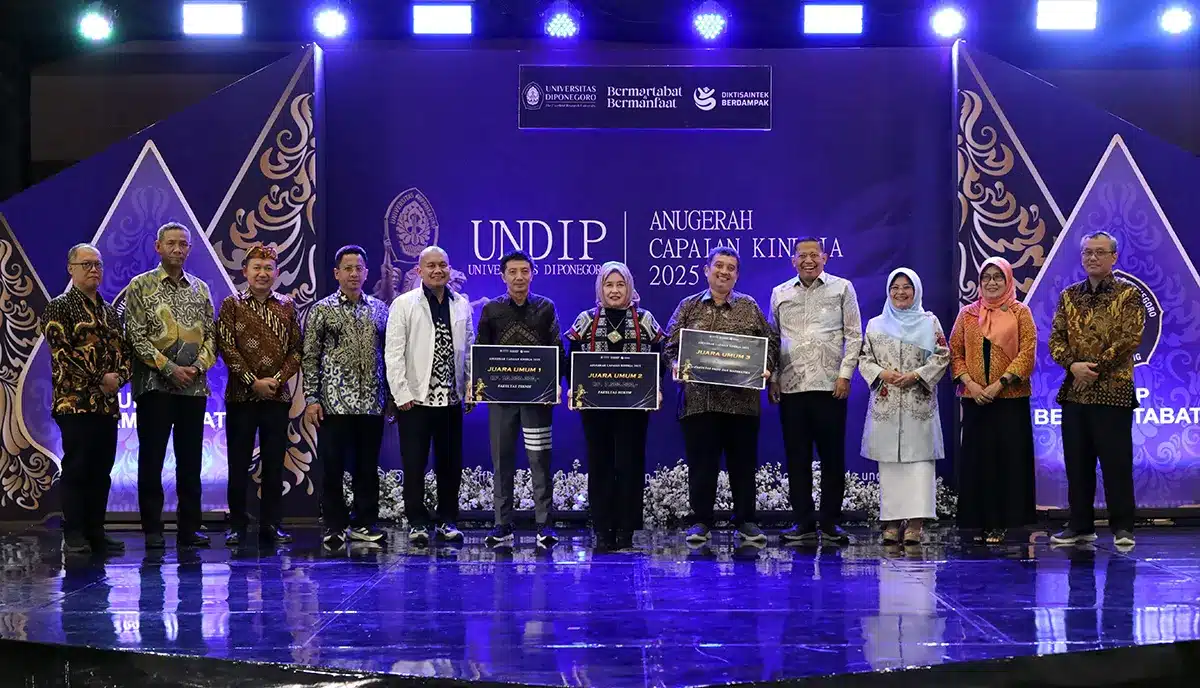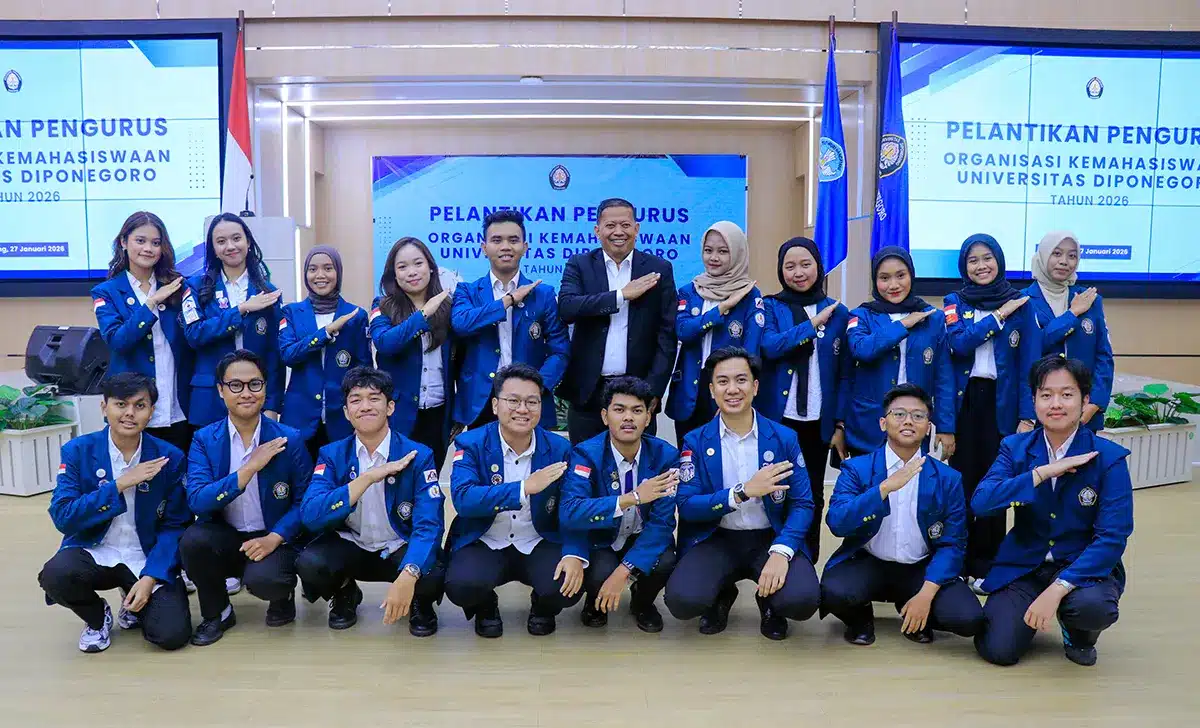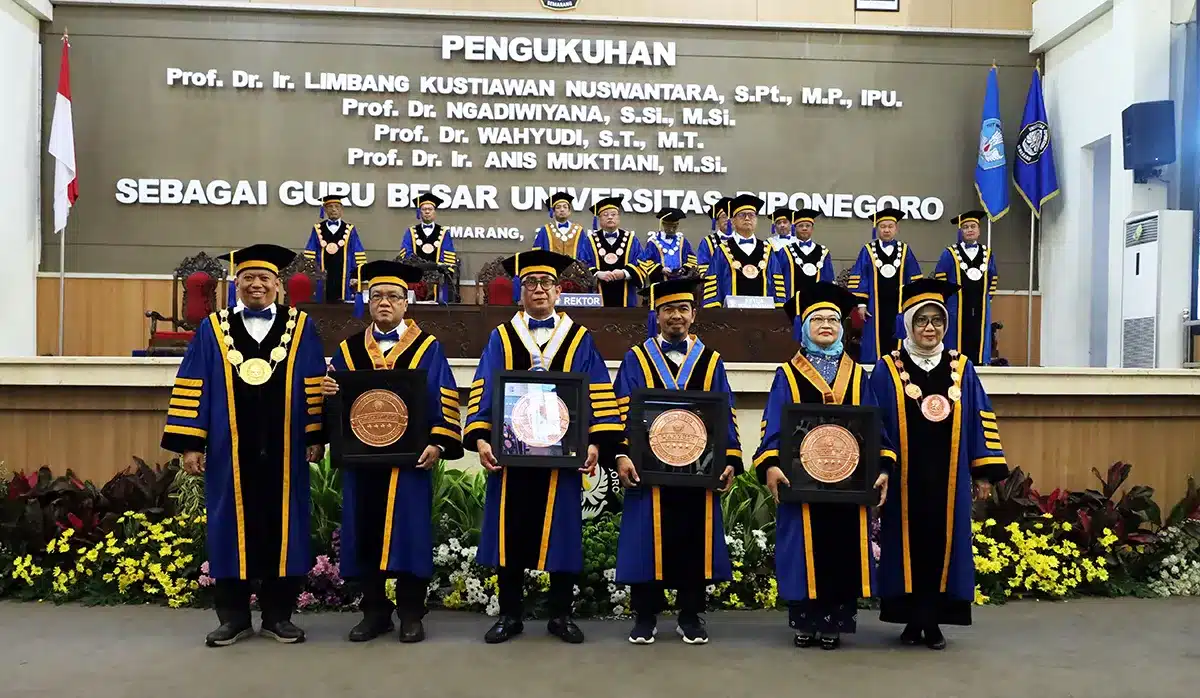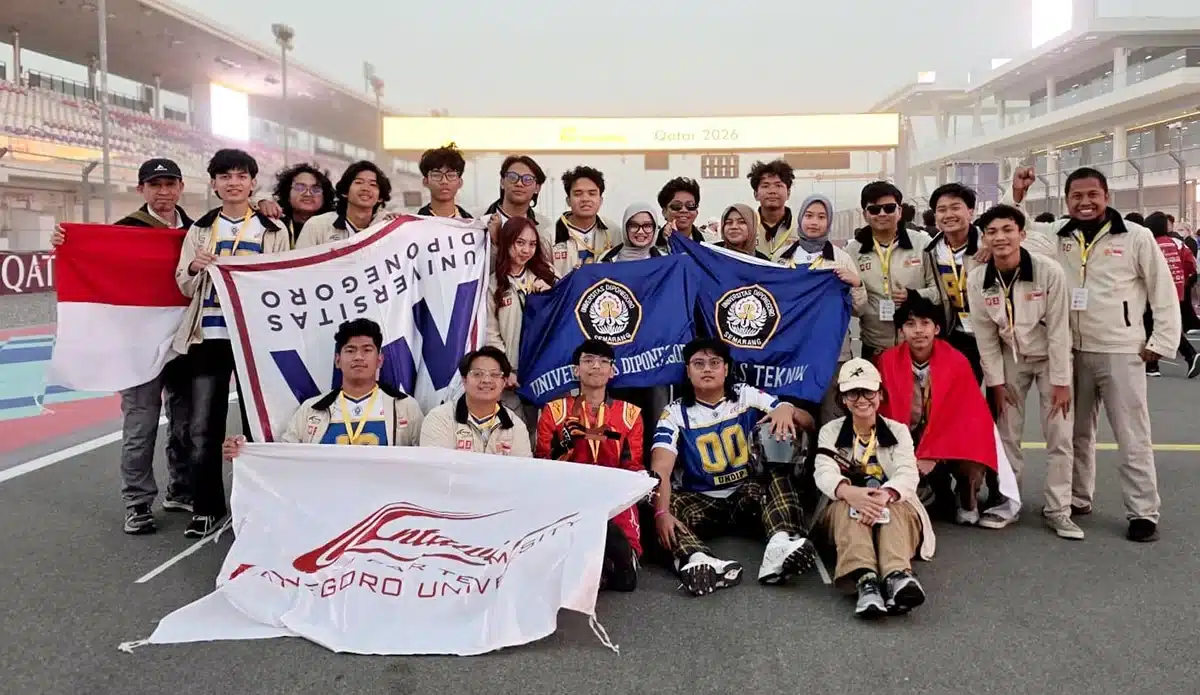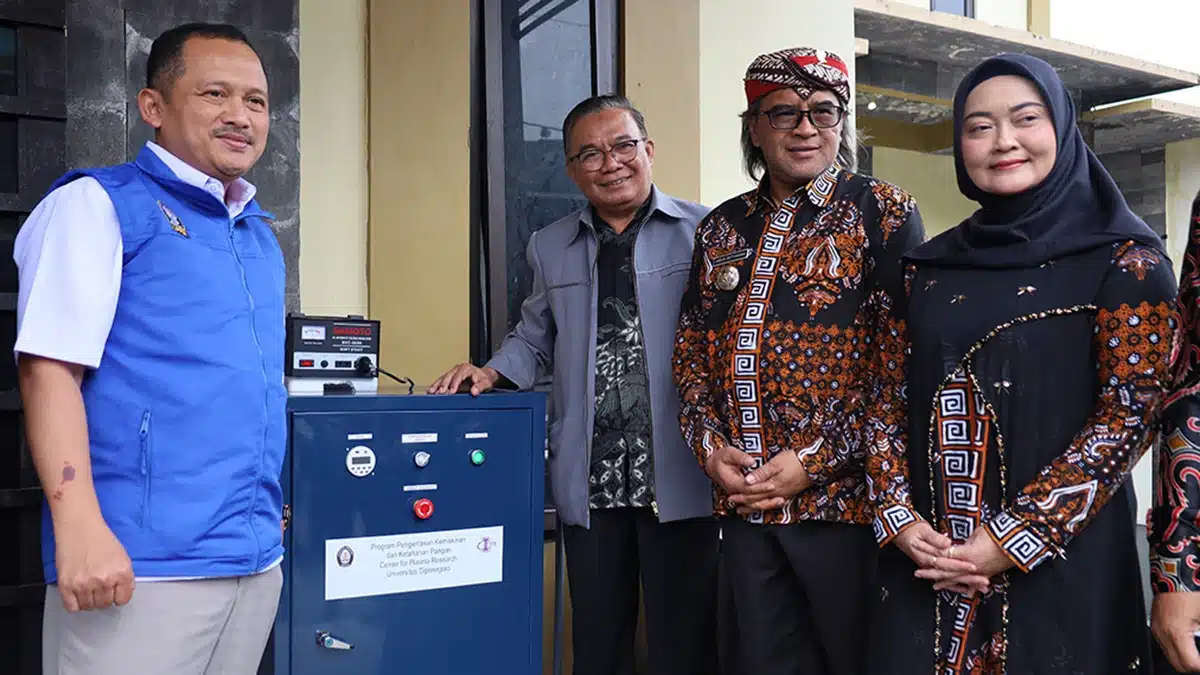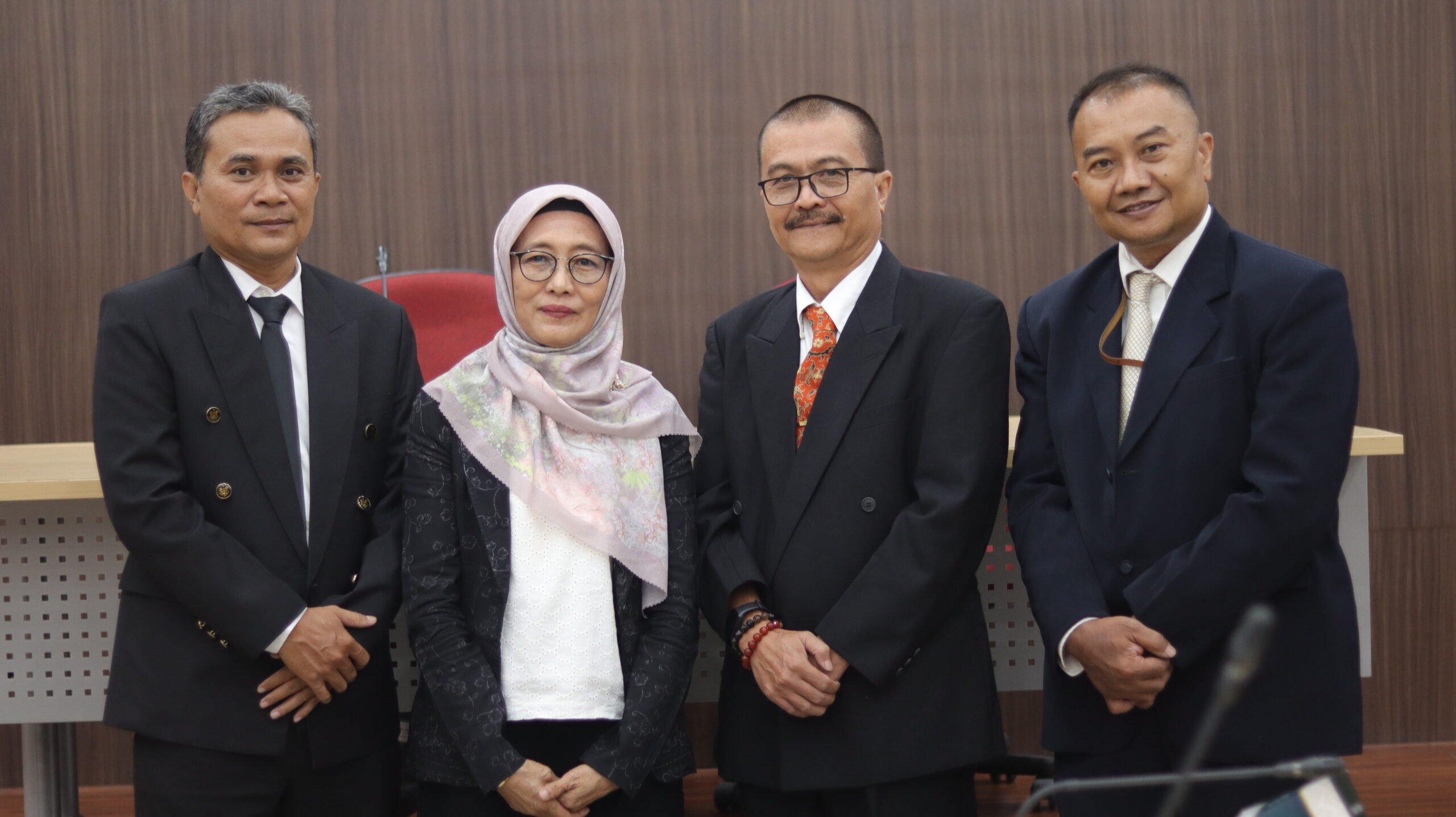Universitas Diponegoro held a scientific paper presentation for four prospective professors organized by the UNDIP Board of Professors on Thursday (2/10). The four candidates, all from the Faculty of Animal and Agricultural Sciences, are Sutaryo, S.Pt., M.P., Ph.D.; Dr. Ir. R.R. Retno Adiwinarti, M.Sc.; Ir. Bambang Sulistiyanto, M.Agr.Sc., Ph.D., IPU; and Dr. Yoyok Budi Pramono, S.Pt., M.P.
In his paper titled “Optimization of Biogas Production from Cattle Waste to Achieve Sustainable Livestock Industry,” Sutaryo highlighted efforts to reduce emissions from cattle waste through anaerobic waste treatment for biogas production. This process not only prevents undesirable fermentation from cattle manure but also produces biogas that can replace fossil-based energy sources.
“To compete with fossil-based energy, methane production from cattle manure must be increased. The increasing production can be achieved through pretreatment of the manure before anaerobic processing and co-digestion with other biomass that has higher nutritional content, digestibility, and methane production potential. However, for industrial-scale application, more detailed studies are needed, especially regarding the additional costs required to implement these treatments and to assess the availability of materials used as co-substrates with cattle manure,” Sutaryo explained.
In her presentation on small ruminant livestock management, Retno emphasized that increasing livestock productivity can be achieved through intensive management systems with free-stall housing and improved feed quality (with a crude protein content of 14-15% and TDN 56-62%).
“An efficient form of feed to enhance livestock productivity and welfare is complete feed or a total mixed ration in pellet form. Moreover, the pellet-shaped feed can mask the taste of feed ingredients that are less palatable to livestock. The feed consumed will affect the number of chewing cycles, which is related to rumen health. Therefore, rumen health must be maintained by monitoring the rumen pH, which is influenced by the fiber content in the feed and subsequently affects the number of chewing cycles,” she stated.
Meanwhile, Bambang discussed “Fermentation Technology for Developing Functional Feed in Poultry.” His research on the use of fermented products as functional feed has shown positive results as a substitute for antibiotics in poultry, such as broilers, native chickens, and turkeys, with a variety of roles and functions.
“The potential for developing local poultry as a support for production, given their non-corn and non-soybean meal-based genetics, shows a better response to the use of functional additives. The functional additives will be highly beneficial as an effort to empower local resources to support the development of the national livestock industry,” he explained.
In his turn, Yoyok presented “The Role of Fermentation Systems and Food Safety in the Development and Diversification of Products for Quality and Health Improvement.” He explained that fermentation, as a traditional food processing method, has been proven to enhance food quality and nutritional value. However, the complexity of the fermentation process and various external factors, such as climate change and lack of regulation, pose challenges in ensuring food safety for fermented products.
“Microbial contamination, chemical contaminants, and production process variability are the main risks that can threaten consumer health. To address these challenges, joint efforts are needed from various stakeholders, including producers, the government, academics, and consumers. The implementation of good production standards, strict quality monitoring, and public education are key to building a strong and sustainable food safety system for fermented products,” Yoyok concluded. (LW – Public Relations)


